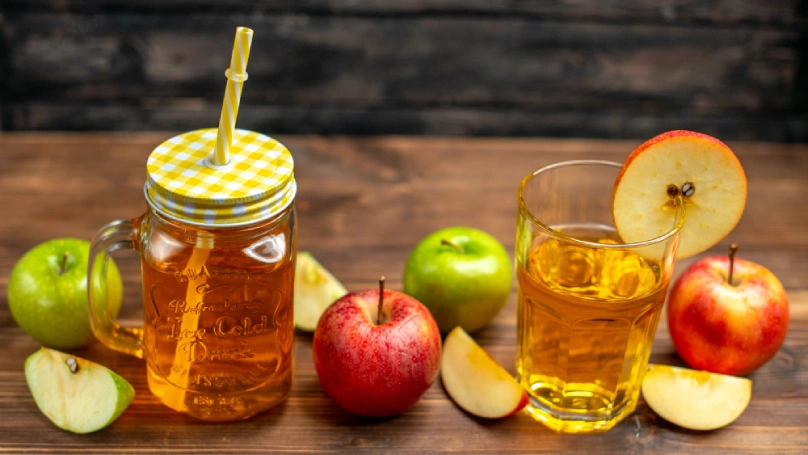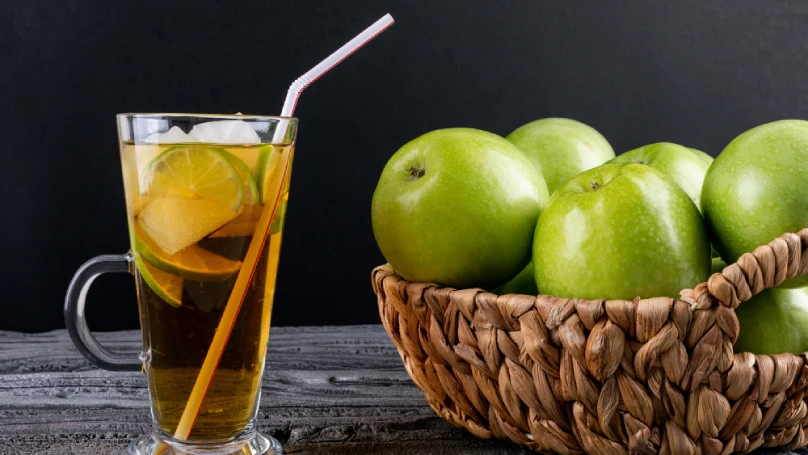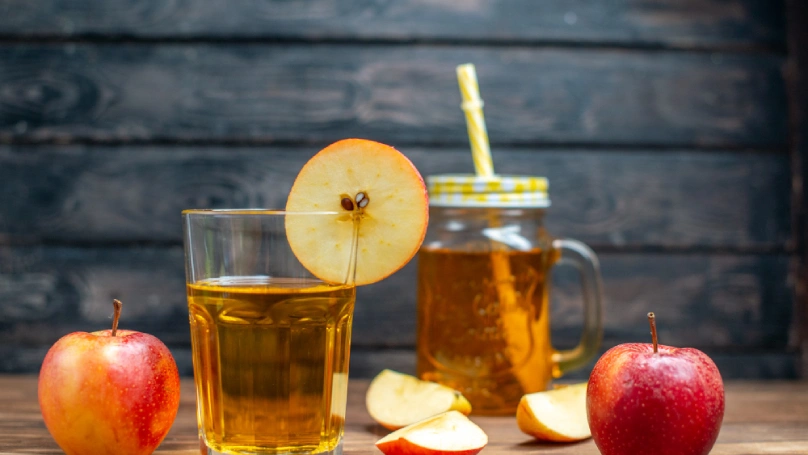Having a glass of apple juice in expectation of an amazing experience and then realizing it produces an allergic reaction is all too familiar. Apple juice concentrate is one ingredient of various beverages and other food products but can be dangerous at times with respect to some allergies. The reactions may range from mild, like oral discomfort, all the way to severe anaphylaxis.
Allergy to apple is mainly due to the protein reaction that exists within the apple itself. Some of these proteins may also be present in apple juice concentrate, causing allergic reactions in sensitive individuals. People allergic to birch pollen, for instance, may be struck by Oral Allergy Syndrome (OAS), in which the proteins in apples, including those present in apple juice concentrate, cause an immunological cross-reaction. Consequently, that individual develops allergic symptoms whenever apple or apple juice concentrate is ingested. Apple juice concentrate may also be contaminated with residual amounts of other allergenic pollen that could elicit a hypersensitive response.
Some mild symptoms are itching, swelling, or redness in the mouth, lips, or throat. These symptoms are most commonly found with OAS and generally occur just after eating the concentrate. More severe symptoms can include hives, skin rash, stomach pain, diarrhea, difficulty breathing, or anaphylaxis life-threatening reaction that requires medical assistance as soon as possible.
Understanding Apple Juice Concentrate Allergy
An allergy to apple juice concentrate is a subtle phenomenon, where the immune system reacts unfavorably to proteins or other substances present in concentrated apple juice. Most apple allergies result from the consumption of raw apples; however, concentrated forms can produce reactions in individuals who do not react to fresh apples.
The allergens contained in apple fruit are specific proteins like Mal d 1: these produce allergic reactions in sensitive persons. Most importantly, many of these proteins have been proven to last in apple juice concentrate and hence can trigger allergic reactions.
Most apple allergic reactions fall under a condition known as oral allergy syndrome (OAS). This syndrome has characterized itself by causing a wrong immunologic interpretation of the proteins of apples with some closely related protein parameters in certain pollens notably birch pollen. And, cross-reaction in such instances leads to symptoms like some degree of itching or swelling in the mouth and throat after consuming apple products juice concentrated included.

Causes of Apple Juice Concentrate Allergy
The allergy to apple juice concentrate is multifactorial, and it may have some underlying complexities based on endogenous apple proteins and cross-reactivity to pollen allergens or with contaminants potentially introduced during processing. An understanding of such aetiologies is vital in managing and preventing such scenarios most effectively.
Allergy to Proteins of Apple
The basic etiology of apple juice concentrate allergy would involve exposure to apple proteins. Mal d 1, a well-recognized major allergen associated with apples, would resist processing to a greater or lesser extent; this, in turn, would allow for cross-reactions with birch pollen’s major allergen, Bet v 1, dependent on the degree of heterogeneity of that protein incident to heat treatment. Some proteins denature during cooking, while Mal d 1 is heat-labile, meaning it breaks down on heating; however, the degree of denaturation varies such that some might still react in processed forms, like juice concentrate.
Oral Allergy Syndrome (OAS)
Oral Allergy Syndrome occurs in an overlap of those allergic individuals with certain pollens, such as birch, who will experience allergic manifestations due to a similar protein in apples. The IgE of such individuals reacts against similar structures from the pollen and such fruits, and the symptoms are usually subtle chilblains or swelling of the mouth/lips/throat shortly after raw fruit ingestion. The OAS reactions are not usually much of a problem, and most symptoms are localized; however, there may on some occasions, be generalized reactions.

Other Allergens in Apple Juice Concentrate
Besides proteins from apples, apple juice concentrate may also contain some traces of other allergens introduced during the processing. For example, if processing equipment were used to manufacture apple juice concentrates without adequate cleaning after processing allergenic foods, cross-contamination would seem feasible. The presence of additives and preservatives in the concentrate might also elicit allergic reactions in predisposed individuals.
Processing Method and Additives
Different processing methods might have different allergic potentials on apple juice concentrates. Some would leave significant allergenic proteins behind, while some additives intended for taste and preservation would potentially be allergens in their own right. Thus, it is incumbent upon the manufacturer to ensure that high standards of processing are maintained regarding such potential risks.
Individual Sensitivities and Genetic Factors
Genetic factors come into play concerning food allergies, including those related to apple juice concentrate. Individuals who are allergic to and members of a family have anyone suffering from one or the other allergic disorders, like bronchial asthma or eczema, are likely to be more sensitive. In this respect, the individual reaction profiles may be quite variable, thus the need for personalized medical advice.
Conclusion
Allergy to apple juice concentrate is relatively rare. The allergic reaction can manifest in mild oral discomfort or severe cases like anaphylaxis. Knowledge of the inciting agents such as certain apple proteins and cross-reactivity with pollen is necessary for effective management. Individuals with this allergy must consult an allergist for proper diagnosis and the development of an emergency action plan.
However, apple concentrate benefits, and apple juice concentrate presents some unique challenges. Apple juice concentrate is an excellent source of nutrients such as vitamin C and potassium, known to enhance immune function and heart health, respectively. In addition, it contains other valuable plant compounds such as flavonoids and carotenoids, which possess antioxidant properties that help reduce inflammation and maintain skin health. Transport and shelf storage of juice concentrates are much easier compared to fresh apples, making it an attractive option for consumers.
Tarazfoods is the largest exporter of beverages and food products in Iran and provides customers with a wide variety of products including fruit juice concentrates, purees, and Drinks exporter in iran. Tarazfoods is the primary choice for customers since they always maintain quality control and provide products of international standards.





